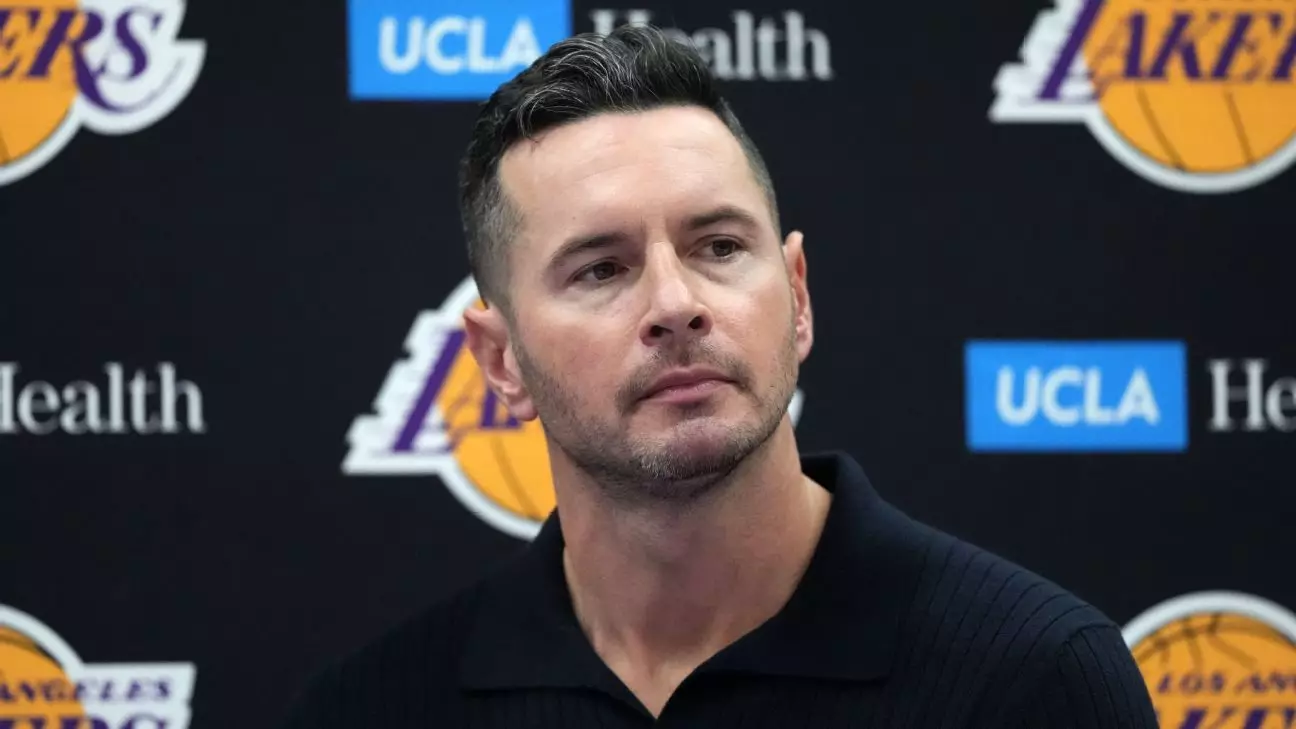JJ Redick, a name that resonated through NBA arenas during his playing days, is now embarking on a new chapter as the head coach of the Los Angeles Lakers. This transformation comes with its own set of challenges and revelations. Recently during a preseason game against the Milwaukee Bucks, conducted by Doc Rivers—Redick’s former coach—he was reminded of the influence his past media role had on his current duties. Transitioning from being an analyst to a head coach is no small feat; it requires a delicate balance between leadership, strategy, and maintaining professional relationships.
Given the immediacy of Redick’s recent tenure at ESPN, it’s apparent that some of his publicly aired criticisms are bound to linger in the minds of players and coaches alike. This becomes increasingly complex when he faces figures associated with his past performances and even criticisms. After all, the basketball community is a tight-knit one, where relationships intertwine in professional and personal capacities.
Redick played under Rivers from 2013 to 2017 with the Los Angeles Clippers, making their relationship an important talking point. When asked about their dynamic, Redick maintained a diplomatic stance, opting not to delve into the nuances of historical grievances, affirming, “I don’t carry beef with people.” While this response may reflect a desire to maintain professionalism, it underlines the essence of maturity in a profession that often brings egos to the forefront.
Earlier this year, during an episode of First Take on ESPN, Redick articulated his grievances regarding Rivers’ coaching style amid a contentious period for the Milwaukee Bucks. His remarks were piercing, suggesting that Rivers often deflected accountability. This moment, filled with passion, showcased Redick’s approach—assertive yet controversial—something that is common in sports discourse but can easily eclipse one’s intentions when taken out of context.
Upon later reflection, Redick conceded that he regretted his tone during the broadcast but stood by the crux of his argument. Such self-awareness is vital, especially as one transitions into a position of authority. “I will say this again, [I] regret my tone in that case. I’ve owned that, and I regret my tone,” Redick noted, underscoring the necessity of considering how our words resonate with others, especially when those others are your colleagues in the league.
The ability to reconsider one’s position and adapt is a fundamental pillar not only in coaching but also in media relations. Redick’s experience offers a dual lens—one that examines the struggles of criticism from the sidelines while also recognizing the delicate ebbs and flows of interpersonal relationships within the league.
Moreover, the coaching landscape within the NBA is characterized by intricate dynamics, as highlighted by Rivers’ insights. He remarked that often a coach’s enthusiasm and dedication might not be reciprocated, pointing out that disappointment can manifest when players feel differently from their coaches. Rivers’ words serve as a reminder that leadership cannot be taken personally; rather, it involves serving as a conduit for player development. This ethos encapsulates the reality that coaching is sometimes about guiding players who may not appreciate the process until later stages of their careers.
The connection between coaching and media is palpable in Redick’s case, not just in terms of his criticisms but also in how players respond to differing coaching methodologies. Darvin Ham, who Redick replaced in L.A., is now part of Rivers’ coaching staff in Milwaukee and has encountered similar sentiments from players regarding their experiences under his leadership.
As JJ Redick steers his way through his inaugural season as head coach of the Lakers, he carries not just the weight of expectations but also the lessons learned from previous roles. As he navigates relationships with both former mentors and current players, Redick’s journey reflects the complexities of leadership within professional sports. The path he treads is precarious, marked by past dialogues that often linger. However, through reflection and adaptation, he remains poised to cultivate a positive culture in L.A. with an awareness of the nuances that come with the role. The transformation from critic to coach may pose challenges, but it also offers the potential for a profound impact—both on the players whom he now mentors and within the broader landscape of the NBA.

